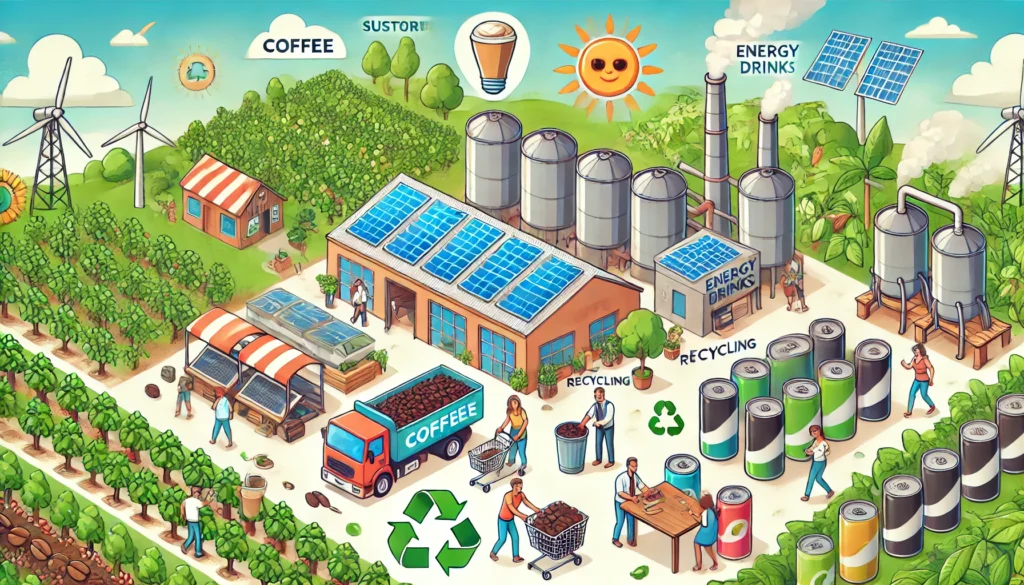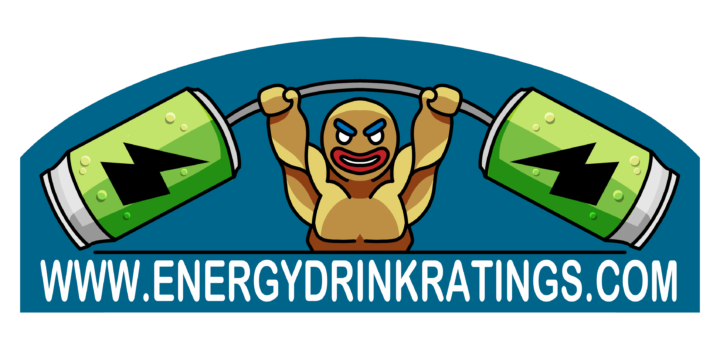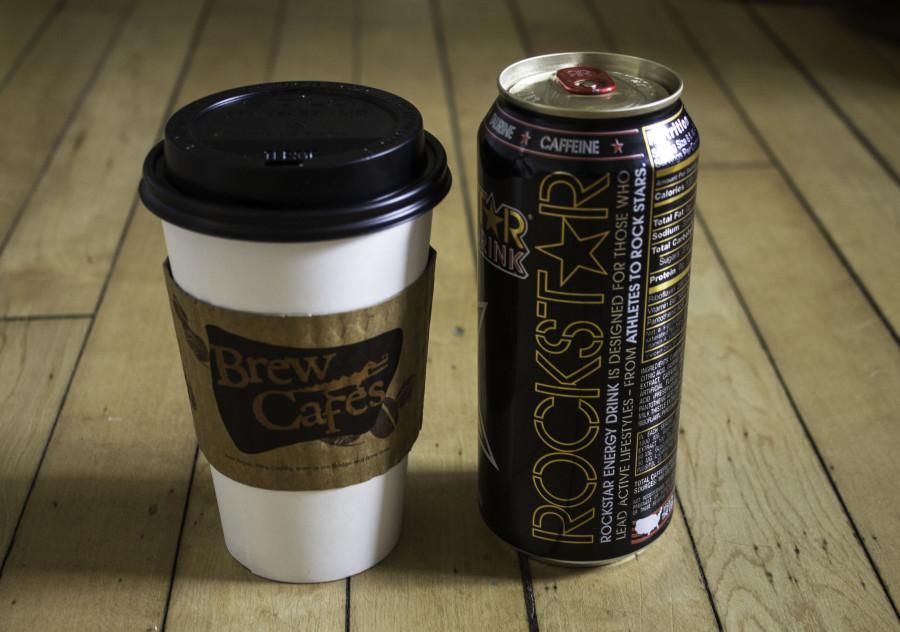Ever find yourself in the middle of the afternoon slump, wondering whether to reach for an energy drink or a cup of coffee? Both are classic choices for a quick pick-me-up, but they come with different ingredients, effects, and even long-term health implications. Together, let’s delve deep into the differences between energy drinks and coffee, comparing their benefits, drawbacks, and overall impact on your health.

Before we get into the nitty-gritty (or dregs), let’s break down the basic components of coffee and energy drinks.
Coffee is a natural beverage made from roasted coffee beans. Its primary active ingredient is caffeine, a powerful stimulant that affects the central nervous system. One cup of brewed coffee typically contains between 95 and 200 milligrams of caffeine, depending on the type and brewing method. Besides caffeine, coffee contains antioxidants, which have been linked to various health benefits, including reduced inflammation and lower risk of certain diseases.
Energy drinks are the flashy, sugar-laden cousins of coffee that have been around for longer than you might think. These manufactured beverages are like a party in a can, containing a mix of caffeine, sugars, vitamins, amino acids, and other stimulants. Popular brands like Red Bull, Monster, and Bang can deliver anywhere from 70 to 300 milligrams of caffeine per serving, along with a hefty dose of sugar or artificial sweeteners. With added ingredients like taurine, B-vitamins, and herbal extracts, energy drinks promise to boost energy, improve focus, and enhance athletic performance.
Caffeine is the main player in both coffee and energy drinks, but the way it’s prepared can make a big difference.
Plain black coffee is the minimalist’s dream – no sugar, no calories. But add cream, sugar, and flavored syrups, and suddenly you’re sipping on a dessert. For health-conscious consumers, drinking coffee black or with minimal additives is the best way to avoid unnecessary sugar intake.

Energy drinks are like sugar bombs. A single can of Red Bull contains about 27 grams of sugar, while a Monster Energy drink can pack up to 54 grams. According to the American Heart Association, excessive sugar intake is linked to obesity, type 2 diabetes, and heart disease. Even the sugar-free versions come with artificial sweeteners, which bring their own set of concerns, including potential impacts on metabolism and gut health.
One of the lesser-known benefits of coffee is its high antioxidant content.
Coffee is packed with antioxidants like chlorogenic acid and polyphenols, which help combat oxidative stress in the body. A review in the Journal of Nutrition found that coffee consumption is associated with a reduced risk of several chronic diseases, including type 2 diabetes and certain cancers. These antioxidants play a crucial role in reducing inflammation and protecting cells from damage.
Energy drinks, on the other hand, generally lack the natural antioxidants found in coffee. While some brands add vitamins and herbal extracts with antioxidant properties, these are often in smaller quantities and may not provide the same benefits as those naturally present in coffee.
Both coffee and energy drinks can offer health benefits, but these benefits come with caveats.

The health benefits of coffee are well-documented. Besides its antioxidant properties, coffee has been linked to improved cognitive function, reduced risk of Alzheimer’s disease, and enhanced athletic performance. The New England Journal of Medicine reported that coffee drinkers have a lower risk of mortality, with benefits extending to reduced risks of stroke and certain cancers. However, these benefits are most evident with moderate consumption, as excessive coffee intake can negate these positive effects.
Energy drinks can provide a quick energy boost, improved focus, and enhanced physical performance, particularly during high-intensity activities. Ingredients like taurine and B-vitamins can also help support metabolic functions. However, the potential health benefits are often overshadowed by the risks associated with high caffeine and sugar content, as highlighted in studies from Pediatrics and other medical journals.
While both coffee and energy drinks can offer benefits, they also come with potential risks and side effects.
The primary risks of coffee consumption are related to its caffeine content. High doses of caffeine can cause anxiety, digestive issues, and disruptions in sleep patterns. Additionally, individuals with certain health conditions, such as hypertension, may need to limit their coffee intake. Pregnant women are also advised to monitor their caffeine consumption, as excessive intake can affect fetal development.

Energy drinks pose more significant risks due to their higher caffeine content and the presence of additional stimulants. Overconsumption can lead to serious health issues such as heart palpitations, high blood pressure, and even cardiac arrest. The Journal of the American Medical Association has documented cases of caffeine toxicity and adverse cardiac events linked to energy drink consumption. Furthermore, the high sugar content in many energy drinks can contribute to weight gain, diabetes, and dental problems.
How people consume coffee and energy drinks can influence their effects.
Coffee is typically consumed in the morning or early afternoon, often as part of a daily routine. It’s enjoyed slowly, often as a social activity, and can be tailored to individual preferences with various brewing methods and additions like milk or sweeteners. This slow drinking allows the caffeine to enter the bloodstream more steadily, reducing the likelihood of sudden spikes.

Energy drinks are often consumed quickly, sometimes in a single gulp. Athletes might use them before or during workouts to enhance performance, while students might reach for a can during late-night study sessions. This rapid intake can lead to quicker absorption of caffeine and sugar, resulting in a more immediate but possibly more volatile energy boost.
The marketing strategies for coffee and energy drinks differ significantly, reflecting their target audiences.
Coffee has a broad appeal, catering to various demographics, from busy professionals to leisurely café-goers. Its marketing often emphasizes quality, tradition, and the artisanal aspects of coffee making. Brands like Starbucks and Nespresso have built their reputations on providing premium coffee experiences. Coffees can be dolled up with cream and other sugary flavors to increase their mass appeal.
Energy drinks target a younger, more active audience. Their marketing often focuses on high-energy activities, extreme sports, and late-night productivity. Brands like Red Bull sponsor sporting events and athletes, creating an image of strength and performance. This aggressive marketing can make energy drinks particularly appealing to teenagers and young adults, a demographic that is more susceptible to the risks of overconsumption.
Both coffee and energy drinks offer convenience, but they cater to different needs and situations.
Coffee can be made at home, purchased at a café, or even grabbed from a vending machine. The rise of single-serve coffee makers like Keurig has made it easier than ever to enjoy a cup of coffee at any time. This flexibility makes coffee a versatile option for both leisurely mornings and busy workdays.
Energy drinks are all about convenience. They’re pre-packaged, portable, and ready to drink, making them ideal for on-the-go consumption. Whether you’re heading to the gym, working late, or embarking on a long drive, energy drinks offer a quick and easy way to get an energy boost.
In today’s world, environmental considerations are increasingly important.

The coffee industry has a significant environmental footprint, from the deforestation linked to coffee plantations to the carbon emissions from roasting and shipping. Farmers abd workers are often paid well below the livable wage for their national average. However, there is a growing movement towards sustainability in coffee production. Fair trade and organic certifications, as well as initiatives to support sustainable farming practices, are helping to mitigate some of the environmental impacts. A growing demand for reusable coffee cups and pods also contribute to reducing waste.
Energy drinks come in single-use cans or bottles, contributing to environmental waste. The production and disposal of these containers, along with the environmental cost of transporting these products, add to their ecological impact. Some companies are beginning to adopt more sustainable practices, but the industry still has a long way to go in terms of environmental responsibility.
When it comes to choosing between coffee and energy drinks, there’s no one-size-fits-all answer. Each has its own set of benefits and drawbacks, and the best choice depends on your individual needs, preferences, and lifestyle.

Coffee is a natural beverage with a wealth of health benefits, particularly when consumed in moderation. Its antioxidants can protect against various diseases, and its caffeine content can boost mental alertness and physical performance. However, it’s important to be mindful of additives like sugar and cream that can significantly lessen its health benefits.

Energy drinks provide a powerful energy boost and can enhance athletic performance, thanks to their high caffeine content and additional ingredients like taurine and B-vitamins. However, their potential risks, particularly those related to high sugar and caffeine levels, make them a less ideal choice for everyday consumption. If you opt for energy drinks, consider sugar-free options and monitor your overall intake to avoid negative health effects.
Ultimately, whether you choose coffee, energy drinks, or a combination of both, it’s crucial to consume them responsibly and be aware of their effects on your body. By doing so, you can enjoy the benefits while minimizing the risks, ensuring that your beverage of choice supports your health and lifestyle goals.
References
- Loftfield, E., Freedman, N. D., Graubard, B. I., Guertin, K. A., Black, A., Huang, W. Y., & Sinha, R. (2015). Association of coffee consumption with overall and cause-specific mortality in a large US prospective cohort study. American Journal of Epidemiology, 182(12), 1010-1022.
- Seifert, S. M., Schaechter, J. L., Hershorin, E. R., & Lipshultz, S. E. (2011). Health effects of energy drinks on children, adolescents, and young adults. Pediatrics, 127(3), 511-528.

